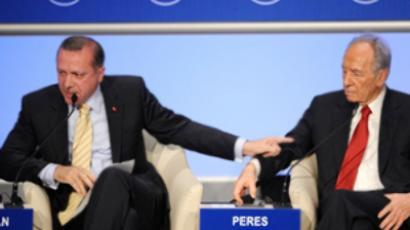Ego-bashing trip to Davos
The World Economic Forum has pretty much always been, as some media have called it, an ego trip for the Forbes 500 Richest List. This year it has been an ego-bashing trip – not something everyone wanted to sign up for.
A magnet for the rich and powerful, the World Economic Forum in the Swiss ski resort of Davos has always been the flame for the moths of global finance and politics, but the times, they are a-changing.
The world economy is in chaos, banking is in crisis and the mood in Davos is more sombre than suave. The media headlines echo this sentiment: ‘Chief executives make their Davos excuses’ (Financial Times); ‘Caviar days are over for Davos crisis debate’ (AFP); ‘A chill wind blows through Davos as global crisis bites’ (Telegraph UK)
As the financial movers and shakers struggle to find a way out of this crisis, they are conveniently forgetting the fact that most of them could be named responsible for causing it in the first place. Ironic that criticism from them is still in abundance, and criticism, according to Russian Prime Minister Vladimir Putin, is best avoided.
“Only a year ago from this rostrum we heard the words of American representatives about the fundamental stability and cloudless prospects of the U.S. economy. But today the pride of Wall Street and the investment banks have practically stopped existing. For the past year they have had to acknowledge losses far exceeding their profits for the past quarter of the century,” said Putin.
As this year’s keynote speaker, he took thirty minutes to put forward his ideas on aiding the global economy:
“One must not allow oneself to skip down to isolationism and unbridled economic egoism. Even if amid crisis a certain strengthening of protectionism becomes inevitable, we will still need to keep the sense of proportion. The second possible mistake would be excessive interference into the economic life of the country and the absolute faith into the all-mightiness of the state”.
This statement definitely hit the bullseye with some of the world’s top economic and industrial movers-and-shakers in the audience.
“Mr. Prime Minister, you spoke of the dangers of excessive government involvement, and I found myself really struck by that comment and surprised to hear it,” noted Michael Dell, Dell Computer CEO. “Six months ago I would have never imagined hearing that comment from yourself, but I have to say I completely agree with you”.
This year’s WEF was certainly unlike the forums of previous years. Many CEOs dropped out, the new U.S. Administration was virtually unrepresented, and tensions were clearly high, as arguments took place both off and on stage.
Tear gas fired during violent Davos protest
Protests at the Davos World Economic Forum have turned violent in Geneva, Switzerland, with police using tear gas to disperse demonstrators.
It is reported that a crowd threw bottles at police when they were blocked from entering the city centre.
A police spokesman estimated that there were 350 to 400 people in the crowd. He said there have been 16 arrests, though dozens more protesters were briefly detained.
The rally, which was not authorised by city authorities, was organised by a coalition of leftists from trade unions along with anarchists known as the Black Bloc.
The forum, held in the elegant Swiss ski resort Davos, is an annual event. This year it is being held amid the global economic crisis and growing unemployment.
Participants at the forum – the world's business and political leaders – are increasingly blamed for the current state of world affairs.
Violent protests are rare in Geneva, though in the past decade a number of rallies have been staged by opponents to globalisation.













